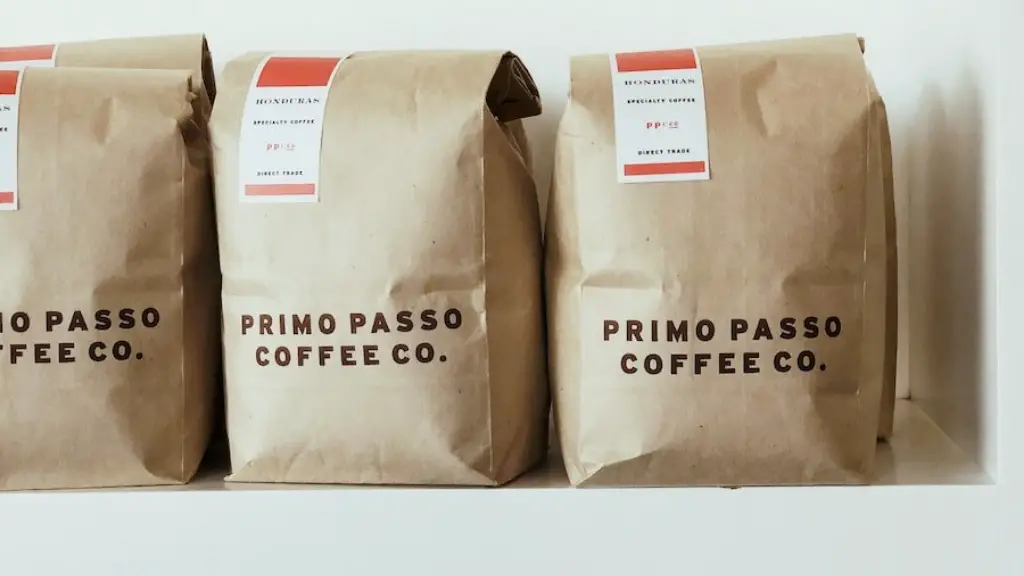Having Crohn’s disease can be an extremely debilitating and draining condition. One of the most important things is to make sure that you’re eating well and drinking enough fluids to keep your body functioning optimally. But what about coffee, a beloved beverage consumed around the world every day? Can people with Crohn’s disease safely drink coffee?
Consuming coffee with Crohn’s disease is usually fine, but it’s important to be aware of potential risks associated with drinking too much. Coffee is an acidic beverage, which can irritate the digestive tract, potentially exacerbating Crohn’s disease symptoms. Additionally, those with Crohn’s disease are particularly sensitive to the effects of caffeine. Drinking large quantities of coffee can cause dehydration, which can lead to constipation, intestinal pain, and an increase in inflammation.
Research has shown that decaffeinated coffee is generally considered to be a safe option for those with Crohn’s disease. Decaffeinated coffee still contains beneficial compounds like antioxidants and anti-inflammatory substances, but without the potential risks associated with caffeine. However, it’s still important to be mindful of the amount of coffee you’re drinking. Whether it’s caffeinated or decaffeinated, drinking too much can still cause issues.
For those with generally mild Crohn’s disease symptoms, drinking caffeinated coffee in moderation is typically safe. However, it’s best to limit your intake to 1 to 2 cups per day. Additionally, it’s recommended to avoid adding additional sugar or sweeteners to the coffee, as these can cause irritation in your intestines. For those with more severe Crohn’s disease symptoms, it’s usually best to avoid drinking caffeinated coffee and opt for decaffeinated instead.
It’s important to note that everyone is different, and you should always talk to your doctor about what’s safe for you. Additionally, it’s a good idea to keep a food diary so that you can identify which dietary choices are causing flare-ups or exacerbating your symptoms.
Caffeinated versus Decaffeinated
As discussed earlier, caffeinated coffee can be consumed in moderation with Crohn’s disease, but it’s best to avoid drinking more than 1 to 2 cups per day. This can be hard for individuals that rely on coffee for energy and productivity. Additionally, drinking caffeinated coffee can cause dehydration, which can further limit other beverage options and make it difficult to get the necessary hydration.
Decaffeinated coffee is generally considered to be safe for those with Crohn’s disease, however it typically doesn’t contain enough caffeine to provide associated energy benefits. Additionally, some individuals find that they don’t enjoy decaffeinated coffee as much as caffeinated, so it’s not always the ideal choice. However, if you’re looking for a safer option at least in terms of your Crohn’s disease symptoms, decaffeinated coffee is probably the way to go.
Other Beverage Alternatives
It’s a good idea to explore other beverage alternatives as well, such as tea and non-caffienated herbal beverages. Tea contains a small amount of caffeine, but is generally considered to be safe for those with Crohn’s disease. Herbal tea is also a great option and can often offer additional health benefits depending on the ingredients.
Additionally, there are plenty of non-caffeinated drinks that can provide energy and hydration without irritation. One popular option is kombucha, which is a fermented tea that provides a boost of probiotics, B vitamins, and antioxidants. It’s also important for those with Crohn’s disease to drink plenty of water and other low-sugar beverages everyday to avoid dehydration.
The Bottom Line
Drinking coffee with Crohn’s disease is typically safe, but it’s important to limit your intake and avoid high-sugar and caffeinated beverages. Many individuals find that decaffeinated coffee is preferable, but it’s also a good idea to explore a variety of alternatives to ensure you’re getting the nutrition, hydration, and energy you need.
Caffeine Tolerance
For those with Crohn’s disease, it’s important to be aware of caffeine-tolerance and other potential risks. For example, some individuals may find that drinking even small amounts of coffee aggravates their Crohn’s disease symptoms. Additionally, those with Crohn’s disease are particularly sensitive to the effects of caffeine, so it’s important to keep an eye on the amount of coffee you’re consuming.
For those with mild Crohn’s disease symptoms, drinking up to one or two cups of caffeinated coffee should be generally safe. However, it’s best to avoid additional sugar, cream or sweeteners, as these can cause inflammation. Additionally, individuals should always monitor their response to caffeine and adjust accordingly.
Herbal Alternatives
There are a number of herbal alternative beverages that can provide energy and hydration without the potential risks associated with caffeine. Some popular options include kombucha, chamomile tea, and ginger tea. Additionally, some of these herbal alternatives may offer additional health benefits, depending on their ingredients.
Just like coffee, it’s important to keep an eye out for sweeteners or added sugars that can cause irritation in your digestive system. Additionally, some individuals may find that certain herbal tea blends aggravate their symptoms even more, so it’s important to monitor your response and adjust accordingly.
Smoothies and Juices
Smoothies and juices can be a great way to stay hydrated and provide your body with essential nutrients. Fruits and vegetables are an important part of a healthy diet, and can often help to fight inflammation and provide a boost of energy. Additionally, smoothies and juices can be customized to your dietary needs and can often be made with healthy ingredients like almond or coconut milk.
If you do choose to drink smoothies and juices with Crohn’s disease, it’s important to be aware of potential triggers. For example, some individuals find that high-fiber foods or fruits such as apples and pears can exacerbate Crohn’s disease symptoms. Additionally, some individuals may need to avoid certain ingredients altogether. It’s always best to talk to your doctor and monitor your response to any dietary changes.




